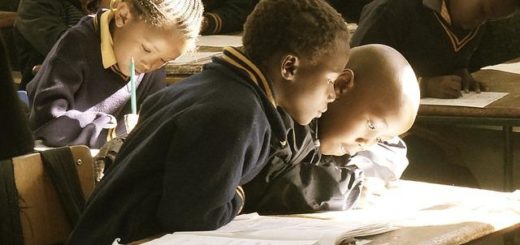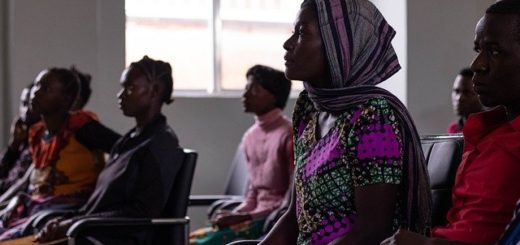Consultancy for Performance Evaluation of BCDG Network
BACKGROUND INFORMATION
Springfield Centre in Glasgow conducted the first BDS Training Programme in July 2000 with five representatives drawn from Donor programmes in Kenya. The Launch of the Blue Book by the Donor Committee on Small Enterprise Development in 2003 at ILO gave guidelines on BDS Programmes implementation that paved way for Donor programmes seeking to use BDS approach in programme implementation. Kenyan Donors desired to agree and harmonize basic BDS market development approach/ principles, to avoid undermining each other’s efforts, leading to the formation of the BDS Donor Coordination Group (BDCG). This has evolved to take a holistic approach through the Market Systems M4P (Making Markets work for the poor) approach – MSD.
Since Danida’s Agricultural Business Development (ABD) and Business sector programmes had a great component on capacity building in this new implementation approach, the Danish Embassy took up the donor co-ordination role and in 2005 Danida ABD Programme agreed to host the Secretariat of the BDS Donor Coordination Group (BDCG). When MESPT took over the ABD program, she automatically became the Secretariat and has continued to with the role to-date.
PURPOSE AND MANDATE OF THE BDCG
The purpose of the BDCG network was to maximize the effectiveness and impact of donor-led activities in BDS, market development and value chain intervention through active coordination and information sharing amongst institutions implementing donor funded programmes. The BDCG was set up to provide support to donors and implementing agencies at the level of facilitator and Supra-facilitators with the main aim of eliminating duplication of effort, enhancing learning and sharing of experiences amongst development partners while ensuring that they conform to best practices globally.
Membership was opened to like minded organizations that are donor funded and implementing BDS/Value chain and market systems development projects in Kenya and the region, consisting of principal donors, donor contractors, and key government officials that were involved with large, multi-year BDS-related initiatives that provide significant impact at the micro- and small-enterprise level.
The founder members of the group included; USAID-Kenya, ACDI/VOCA, Kenya Markets Trust, OXFAM, UNDP, MESPT, SNV, Deloitte, Techno Serve, CARDNO Emerging Markets, Aga Khan Foundation, IFDC, Land O’ Lakes, Heifer-Kenya, HIVOS, GIZ, SIDA, KAM, KCDF. Later on new entrants joined like; Christian Aid, Equity Group Foundation, Self Help Africa and East Africa Market Development Associates, amongst others
RATIONAL FOR THIS ASSIGNMENT
Since its inception in the early 2000s, the BDCG facilitated annual trainings on BDS and MSD that would culminate into an Annual Conference commonly termed as the Annual BDS conference with the 2021 marking the 15th Annual Regional Conference. These meetings brought together development practitioners, entrepreneurs and policy makers coming together to reflect on growth of the markets, emerging opportunities, and progress towards realization of development through this approach in the Eastern African region. The practitioners use the conference to share lessons and successes. The training aspect of the conference offers an opportunity for development practitioners to develop or update their knowledge and skills in markets systems development, facilitation, results management and explore potential for collaboration with other players in the development and business sectors.
During the 15th Annual Conference evaluation, having had a large percentage of new entrants both institution wise and participants themselves and very few founding members, there was a general agreement that the network needs a review in terms of its structure, goals and activities. At the same time, changing donor fundings has also occasioned the need to relook at the secretariat in terms of coordinating the activities and the network in general.
This has called for the need to redesign the network to enhance its role in the sector while aligning changing development needs and growth of its current and potential membership as well as the general changes in the development ecosystem. .
THE OVERALL OBJECTIVE OF THE EVALUATION
This evaluation therefore seeks to assess the performance of the Network through the years of its operation and unravel its achievement and impact on the member organizations and individual practitioners that partook of its activities, while drawing lessons learnt through the period and recommendations that would inform its future strategic development.
SCOPE OF EVALUATION
The evaluation will be provide the Network secretariat and key stakeholders with an opportunity to reflect on its past performance and where applicable the impact BDCG Network’s so far in terms of: 1)whether the network and its activities met the members’ expectations and needs, 2) whether the current activities are still relevant or needs to be reviewed, 3)significant factors affecting members’ involvement into network activities/ initiatives either positively & negatively and 4) what could be done differently to bring vibrancies and impact of the network 5)what alternative governance structure could be put in place for sustainability of the network 6) document of case study of a similar network that is working successfully in Kenya and/or in the region. In addition, it will provide a perfect opportunity to capture and document learnings.
Key Evaluation Questions
Performance of BDCG
- To what extent the Network has delivered on its mandate and objectives
- To what extent has the Network directly impacted the member institutions
- To what extent has the Network met the needs and expectations of its members, donors and practitioners
- To what extent has the BDCG Network contributed to capacity development of its member staff
- What are the key recommendations that have arisen out of this evaluation that, if implemented will improve future operations and management of the network?
Governance Structure of BDCG
- Have there been a change in the context that BDCG network has been operating in since its inception – activities and management?
- How has any of these changes or no changes affected (positively/negatively) the network activities and membership?
- Is the current management/governance structure of the network sufficient to enable it meet its mandate and objectives?
- What areas of the current governance structure would need to be reviewed/redesigned for its effective operations and member involvement?
Activities/Operations of the BDCG
- To what extent has BDCG network activities achieved in enhancing learning and sharing of experiences amongst development partners?
- Is the current financing model for network activities sufficient to sustain its operations and vibrancy? If not, what other options exist that can support this?
- What other activities could the network undertake to create more value to the members, while supporting the constant changes in the MSD development?
Membership of the BDCG
- Has the partnership been appropriate and effective to drive implementation of BDCG Network initiatives/ projects?
- How are members recruited to the network? Is the current recruitment strategy sufficient?
- How are the new members inducted to understand their role and participation in the network
Impact on the development agenda East Africa
- To what extent has the BDCG Network influenced the Market Systems Development approach and agenda in East Africa through active coordination and information sharing
- To what extent has the BDCG Network performed in eliminating duplication of effort in similar intervention from member institutions
- What are the key lessons learnt, innovations and scalable good practices identified and /or implemented over the years?
Who will be involved in the evaluation
The scope for this assignment will cover institutions members and individual who participated in the network since inception including both active and non-active members, and where possible, involve MSD practitioners who have not been involved in the Network but could potentially be a key player in the network.
THE EVALUATION DESIGN AND METHODOLOGY
The Consultant will utilise the OECD/DAC criteria in assessing the relevance, effectiveness, efficiency, impact, and sustainability of the network as well the provide recommendation based on the key evaluation questions. The consultant will design a detailed methodology, tools and work schedule of the activities with clear timeline and deliverables which will be reviewed in consultation with the appointed evaluation Team.
Evaluation Process
- Review of the relevant documents related to the network initiatives and projects.
- Prepare an inception report which will include a detailed evaluation methodology, sampling approach, evaluation tools and a work schedule with clear timelines.
- Coordinate actual data collection process which will mainly involve interview with network members (old and new individual/organization) and non-members practicing MSD in their program implementation approach.
- Data Analysis, presentation and Report writing
- Review of draft report by network secretariat
- Presenting the key findings and recommendations to network members
- Share/submit the finalized report
EXPECTED DELIVERABLES
- An Inception Report: should be a maximum of 15 pages, produced within 2 working days detailing the methodology; the schedule of activities and the tools for data collection and analysis.
- Draft evaluation Report: This should be logically structured, containing evidence-based findings, conclusions, lessons and recommendations, and should be free of information that is not relevant to the overall analysis.
- A full and final typed data set for both the quantitative and qualitative data collection
- Final detailed evaluation report: – The report should respond in detail to the specific tasks described above and should be a maximum 30 pages including annexes (including the TORs, data collection and analysis tools, List of participants, and any other document relevant to this evaluation study).
- A summarized PowerPoint presentation for sharing with partners and other stakeholders
DURATION OF THE ASSIGNMENT
The assignment will begin with an inception meeting and conclude with a debriefing meeting with representatives from the BDCG network and MESPT team as the secretariat. In overall the exercise is expected to take a maximum 10 working days from the date of signing the contract.
ADMINISTRATION AND LOGISTICAL ARRANGEMENTS
The consultant will report to MESPT MEAL Manager. The evaluation will be carried out with logistical support and services of the MESPT.
QUALIFICATIONS AND COMPETENCIES
The consultant should have at least the following qualifications:
- University education (Bachelor/Master’s degree) in Agricultural Economics, Agri-business management, Agricultural Education and Extension, Strategic Planning and management, Development studies, or related social science.
- A minimum of 10 years of professional experience in facilitating Market Systems Development, value chain development, integrated Food Security and Sustainable Agricultural development programming for international development initiatives preferably in Africa.
- Proven experience in training on Market Systems Development, value chain development
- Proof of previous experience facilitating the BDS conference, or similar regional or international conference(s) will be an added advantage.
- Knowledge and experience of the DANIDA System will be an added advantage
- Demonstrated experience working with private sector player
- Excellent communication and report writing skills.
- A fluent speaker of English and Swahili
- Demonstrated ability to deliver quality results within strict deadlines.
BUDGET
This is a fixed price consultancy with an all-inclusive remuneration of Ksh 250,000/= including disbursements and relevant taxes i.e., VAT, WHT etc.
Potential bidders are therefore required to respond to the TOR with both technical and financial proposal not more than ten (10) pages detailing how they will carry out this assignment. They should attach their:
1) previous relevant experience in the specified field especially with international non-government organizations.
2) 3 referees and their contacts for the last 3 similar assignment undertaken in the recent past,
3) the schedule of the activities with clear timeline and deliverables.
The financial proposal should be explicitly detailed the implementation fees, and all the necessary logistical support (up to and including validation workshops) while taking into consideration the applicable tax implications. The technical and financial proposal should be e-mailed to tender@mespt.org on or before 14th December 2022 by 5 pm EAT
Clarifications to be sent toprocurement@mespt.org








